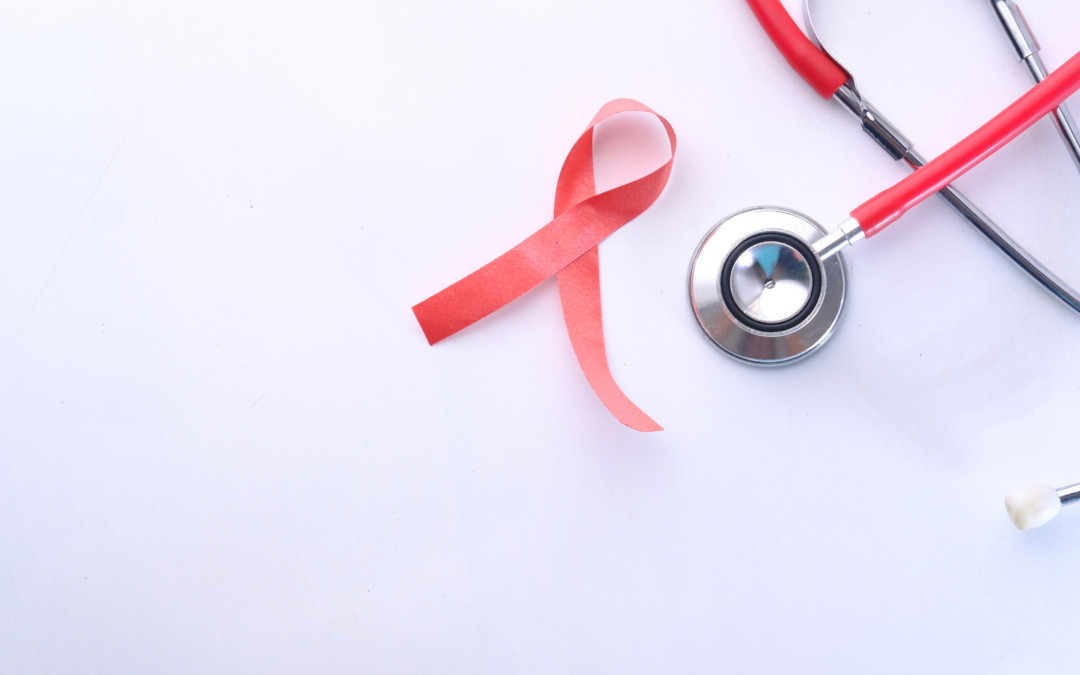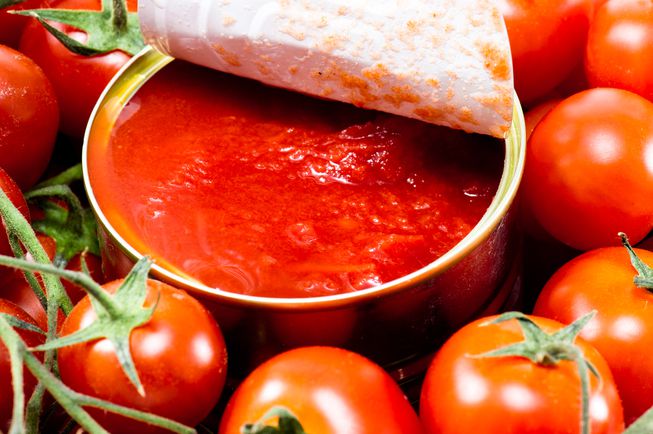
by Tomato Wellness | Jun 30, 2022 | Food and Nutrition, News
There are a number of health benefits that come from the regular consumption of tomatoes and tomato products. Here’s what science has to say about the correlation between canned tomatoes and cancer prevention.
Cancer is a global health concern, and a leading cause of death worldwide. Billions of dollars are spent annually on cancer research, and a significant number of those studies focus on the effects of certain compounds found in food and their cancer prevention properties. The bioactive compounds of plant based foods have been thoroughly examined, with an emphasis on carotenoids and phenolic compounds.
One of the most potent antioxidants out there is called lycopene, which is the powerful pigment responsible for giving tomatoes their bright red color. It can also neutralize reactive oxidative species, and prevent damage to our cell’s DNA. According to several scientific studies, people who consume more tomato products have a reduced risk of developing prostate cancer, likely due to the powerful combination of lycopene, vitamin A, and vitamin C that occurs naturally in tomatoes. Along with being an antioxidant, lycopene can promote cancer cell apoptosis (ie. death), and interfere with cell signaling pathways to prevent cancerous cells from reproducing.
While fresh tomatoes are relatively high in lycopene, the compound becomes more bioavailable as tomatoes are cooked, meaning your body can absorb more and take advantage of its anti-cancer properties. Why is this? Heat changes the structure of the lycopene molecule, making it easier for the body to take in, and helps break down cell walls, which frees lycopene and allows it to be absorbed. A recent study found that men who ate cooked tomatoes five to six times per week had a 28% decreased risk of developing prostate cancer versus those who didn’t. Eating tomato products such as tomato sauce, tomato juice, tomato soup, canned tomatoes, tomato paste, and salsa is a great way to ensure you are getting in plenty of cancer-fighting lycopene.
To get the most out of your canned tomato products, try adding a little bit of oil to your tomatoes, as this can boost your ability to absorb lycopene even more. This is because lycopene is a fat-soluble compound, and the fat in oil helps lycopene get broken down to a form usable by the body. A serving of whole wheat pasta with tomato sauce and a side salad with olive oil and vinegar is the perfect prostate-cancer-preventing meal!
Looking for ways to power up your lycopene intake? Check out these recipes:
Ratatouille
One Pan Chicken Cacciatore
Eggplant Moussaka

by Tomato Wellness | Jul 13, 2021 | News
What is one of the many powers that tomatoes have on human health? They help to reduce the risk of certain types of cancer! Learn more about the antioxidant properties of lycopene and canned tomatoes when it comes to cancer prevention.
It’s important to make sure that we are fueling our bodies with the proper nutrients to live a healthy lifestyle. This includes eating well-balanced meals that contain foods such as fruits, vegetables, whole grains, and lean protein. One source of food that is guaranteed to boost nutrient intake is tomatoes and tomato-based products. Tomatoes contain lycopene—a carotenoid that gives tomatoes their vibrant red color and has various health benefits–which plays an integral role in the improvement of heart health, protection from the sun, and reduction in certain types of cancer.
The incorporation of lycopene-rich foods, especially tomato-based products, have been shown to boost overall health. One specific research study gathered 19 healthy human subjects to identify the impacts that the consumption of tomato-based products—tomato juice, spaghetti sauce, and tomato oleoresin—had on each individuals’ body when the certain tomato-based products were consumed for a period of one week. The results of the study showed that since these products contain dietary lycopene, which is found in tomato products, they may act as antioxidants. In addition to the antioxidant properties found in tomatoes, lycopene is readily absorbed from tomato products. When food is readily absorbed by your body, it aids in gut health and digestion. Therefore, the correlation between lycopene, antioxidant powers, and tomatoes is strong, and researchers suggest that tomatoes can play a crucial role in the prevention of cancer.
As previously mentioned, tomato juice, spaghetti sauce, and other sources of tomato products can improve health and reduce risk of diseases. This goes to show that eating healthy can be made simple. For example, if someone told you to eat pasta with tomato-based spaghetti sauce to boost your nutrient intake, you would easily agree because it’s THAT easy! The best part about tomatoes is that they are extremely versatile and can be paired with both sweet and savory ingredients to whip up a flavorful, nutrition meal. So let’s get cookin’ with canned tomatoes!
Check out some delicious recipes featuring canned tomatoes:
Pan Seared Pork Chops with Bourbon Peach Compote
Easy Chicken Curry
Pizza Stuffed Chicken
The BEST BLT Dip

by Tomato Wellness | Mar 4, 2021 | Health, News
Did you know that you can seriously reduce your odds of getting cancer by what you put on your plate? You can help fight off this devastating disease by loading your plate with disease-fighting plant foods that are rich in a rainbow of phytochemicals which can provide anti-cancer, antioxidant, and anti-inflammatory activities in every bite. Tomatoes are one food that will help lower cancer risk, as lycopene has been shown to be inversely related to cancer mortality.
In a study written by Cambridge Press University, researchers reviewed the correlation between tomato and lycopene consumption and cancer mortality in a prospective demographic cohort. With the help of the National Health and Nutrition Examination Survey of 1999-2010, the study was able to be conducted successfully and thoroughly. The participants of this study included individuals who consumed tomato and lycopene products in order to determine how the intake of these foods can improve health and reduce cancers risks. With this being said, other factors that may have contributed to decreased longevity of one’s lifespan were taken into consideration so that the data was accurate. The results of the study showed that tomato and lycopene consumption were inversely related to cancer mortality. However, the study suggests that there was no apparent evidence that supported the impact of tomato when comparing older versus younger adults and obese versus non-obese individuals. This enables us to conclude that age and weight were not a contributing factor to the results of this study. Additionally, the results provide sufficient evidence that tomato consumption may have potential benefits in terms of cancer risk reduction.
Other studies have also shown that increased tomato consumption, whether it’s canned or fresh, can reduce prostate cancer in men, decrease cardiovascular diseases, and enhance nutritional value in your daily diet. Thus, canned tomatoes should be a staple in your diet because they are not only nutritious, but they are affordable, easily accessible, delicious, and versatile as well! So the next time you’re at the grocery store, grab yourself some canned tomatoes. They can be incorporated into pastas, pizzas, stews, curries, and more!
For other tomato news, check out:
Top 11 Reasons to Go Red with Tomato Products
Can Tomatoes Help Your Kid Eat More Veggies?
What is Lycopene?

by Tomato Wellness | Feb 20, 2021 | Health, News
How does tomato consumption affect prostate cancer in men? The most common type of cancer among Western men is prostate cancer, but some studies suggest that men who consume more tomato products can reduce the risk of prostate cancer. In a recent Adventist Health Study, researchers wanted to determine the correlation between tomato intake and prostate cancer. The participants of the study included 27,934 Adventist men who did not have prostate cancer in the beginning of the study. After a 7.9 year follow-up, there were 1,226 men who ended up having prostate cancer and 355 of these men were greatly affected, as their cancer was aggressive. The results of the study showed that those who consumed 64-71 grams of canned and cooked tomato products per day had a reduced risk of prostate cancer. Though other factors need to be taken into consideration when making this assumption, there seems to be a significant inverse relationship between lycopene consumption and prostate cancer.
Prostate cancer is a serious issue among men, so it’s important to spread awareness about this topic and discover preventive measures. More than 1.3 million men are diagnosed with prostate cancer each year, and numerous studies suggest that lycopene has cancer-fighting properties. Lycopene can be found in tomato products, which contain anti-carcinogenic compounds, such as vitamin A, vitamin C, and fiber. With early detection and higher intake of fruits and vegetables, prostate cancer can be reduced. Thus, it’s important to ensure that you are eating healthy, well-balanced meals and staying active on a daily basis. With so many benefits surrounding canned tomatoes, go ahead and incorporate more tomato products into your daily diet to ensure maximum health!
For other tomato news, check out:
Top 11 Reasons to Go Red with Tomato Products
Can Tomatoes Help Your Kid Eat More Veggies?
What is Lycopene?




Recent Comments